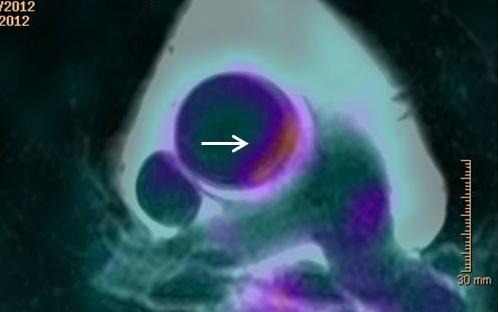CNIC is one of 4 finalists competing for €35m funding from the British Heart Foundation
Dr. Valentín Fuster’s group will contribute to the iMAP project through the PESA-CNIC-Santander study
The British Heart Foundation (BHF) has shortlisted a project involving the participation of the Centro Nacional de Investigaciones Cardiovasculares (CNIC) as one of four finalists that will compete for a single award of £30m (€35m) for research into cardiovascular disease. The funding, to be provided under the BHF’s Big Beat Challenge program.
The proposed project, called iMAP, aims to map atherosclerosis (the accumulation of fats in artery walls) by using cutting-edge technologies and human data to build a detailed and understanding of atherosclerotic plaques. The iMAP project is led by Professor Ziad Mallat at the University of Cambridge, UK. The aim is to construct a 3D ‘Google map’ of human atherosclerosis and determine how and why the immune system malfunctions and causes the disease.
It represents the single biggest investment in pioneering science in the BHF’s 60-year history. In an ideal world, we’d like to fund all four as each one has the chance to make a monumental impact
The CNIC group, led by Dr Valentín Fuster (Director of the CNIC and the Cardiovascular Institute at Mount Sinai Hospital in New York), will contribute to iMAP through the PESA-CNIC-Santander study. PESA (Progression of Early Subclinical Atherosclerosis) is a partnership between the CNIC and Banco Santander and has monitored 4200 overtly healthy middle-aged men and women using imaging technology, blood biomarkers, and omics analyses for the past 10 years. Dr Fuster, principal investigator on PESA, said: “The detailed study in PESA of the presence of initial atheroma plaques, together with the material collected from participants at the earliest, subclinical stages of atherosclerosis, provide an ideal resource for addressing the iMAP goal of producing a cell-level map of this disease.”. Thanks to the recent renewal of the agreement with Banco Santander, the PESA study will continue for at least another 10 years and will make a central contribution to the ambitious iMAP project. “The participation of PESA-CNIC-Santander in a consortium shortlisted for the biggest funding award ever granted demonstrates the worldwide impact made by this flagship CNIC project.”
With the World Health Organization forecasting an increase in cardiovascular deaths worldwide, the BHF launched the Big Beat Challenge in 2018 as a global initiative to inspire researchers to create transformational solutions to tackle this global epidemic.
British Heart Foundation has shortlisted four candidates to help it address the 21st century’s cardiovascular disease epidemic
BHF Medical Director Professor Sir Nilesh Samani said: “Heart and circulatory diseases remain the number one cause of death worldwide. We’re taking small steps forward every year but what’s needed is a giant leap… The Big Beat Challenge embodies our ambition to turbo-charge progress and could lead to its own ‘man on the moon’ moment.”
The Big Beat Challenge offers a single research grant of £30m. Of the 75 applications, which included researchers from more than 40 countries, the three independent advisory panels selected just four.
The three other international projects on the shortlist are “Soft robotic heart”, in which the research team plans to cure heart failure through the development of a hybrid heart; “Next generation cardiovascular health tech”, which aims to develop portable technology to facilitate data acquisition from any person; and “A cure for inherited, killer heart muscle diseases”, which seeks a treatment to inactivate and silence the defective genes that cause cardiomyopathies—heart muscle diseases that can cause sudden cardiac death at a young age.
The project coordinated by Profesor Ziad Mallat of the University of Cambridge, will identify new targets for treatments aimed at eradicating atherosclerosis, the leading cause of death worldwide.
The four shortlisted teams have been given a small amount of seed funding and will present their full applications in the coming months. The full projects will be reviewed by subject experts and the three advisory panels. The final decision is expected at the end of 2020.
Dame Anne Glover, President of The Royal Society of Edinburgh and Independent Advisory Panel member, said: “All four shortlisted applications have identified big problems that desperately need to be addressed. They’ve submitted ideas that are different to anything the BHF has funded before, and the raw ambition, boldness and creativity of all teams is inspirational.”
Professor Sir Nilesh Samani added: “This is high-risk, high-reward research. We whole-heartedly believe in the transformational potential of the Big Beat Challenge to save and improve lives, both here in the UK and around the world. It represents the single biggest investment in pioneering science in the BHF’s 60-year history. In an ideal world, we’d like to fund all four as each one has the chance to make a monumental impact.”











